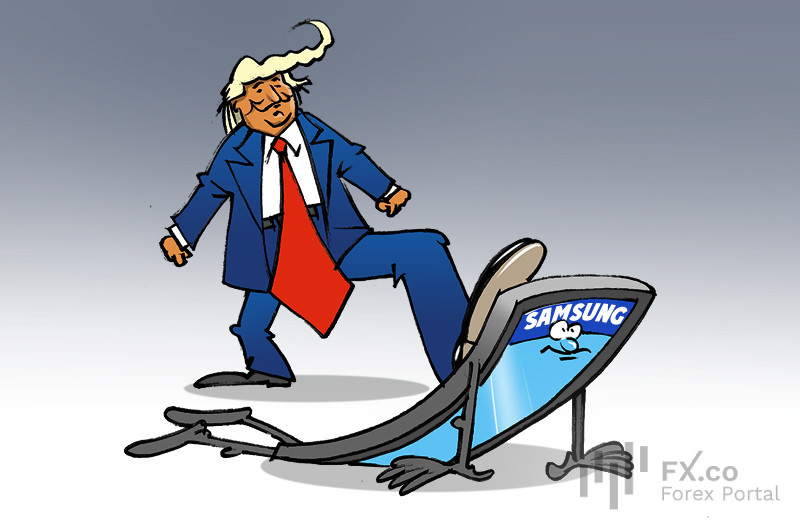
The stock market is in turmoil, with many analysts attributing this volatility to investor concerns over newly elected President Donald Trump's policies. However, the situation is far more complex and intriguing than it may seem. For now, the best course of action is to keep a close eye on the unfolding events.
On November 13, shares of Samsung Electronics, the world’s top memory chipmaker, plummeted to their lowest level in four years, weighed down by worries about the impact of US tariffs under the Trump administration.
That slump made Samsung's stock the worst performer among global chipmakers like TSMC and Nvidia. In 2024, the company's stock lagged behind rivals as demand for artificial intelligence chips surged.
Shares of Samsung, South Korea's most valuable company, fell for the fourth consecutive session, losing more than 4%. This marked the steepest decline since June 24, 2020. Meanwhile, the broader KOSPI index dipped by nearly 2.5%.
Since the beginning of 2024, the company’s stock has fallen by 34%. Experts estimate that it is on track for its worst annual performance in the last two decades.
Lee Min-hee, an analyst at BNK Investment & Securities, believes that potential tariffs on Chinese imports under the Trump administration could deliver a severe blow to Samsung, which is heavily reliant on Chinese customers. By contrast, local rival SK Hynix has benefited from increased sales of high-end AI server chips to US customers such as Nvidia. This year, shares of SK Hynix have risen by 32%, while US chipmaker Nvidia has surged by a whopping 199%.
According to Greg Noh, an analyst at Hyundai Motor Securities, Trump previously pledged to impose a universal 10% tariff on all imports and a 60% tariff on Chinese goods, which could significantly reduce demand for electronic products. Last week, South Korean President Yoon Suk Yeol expressed concern over Trump's potential tariff hikes on Chinese imports. Such a scenario could prompt Chinese competitors to lower export prices, thus worsening the situation for South Korean chip manufacturers overseas.
 Français
Français 
 Русский
Русский English
English Bahasa Indonesia
Bahasa Indonesia Bahasa Malay
Bahasa Malay ไทย
ไทย Español
Español Deutsch
Deutsch Български
Български Tiếng Việt
Tiếng Việt 中文
中文 বাংলা
বাংলা हिन्दी
हिन्दी Čeština
Čeština Українська
Українська Română
Română

Commentaires: